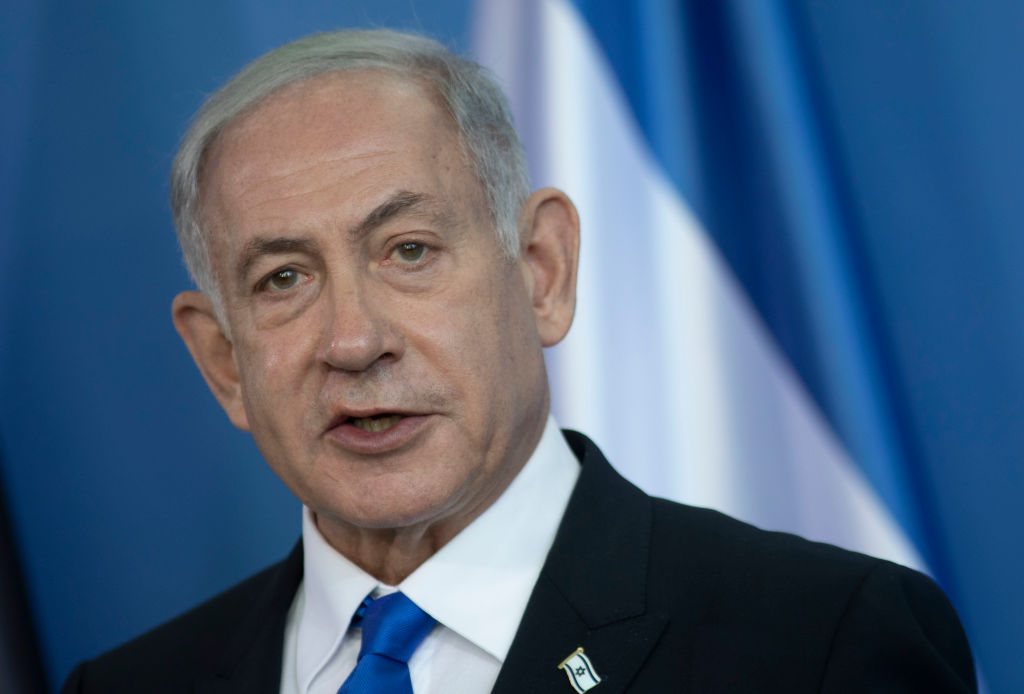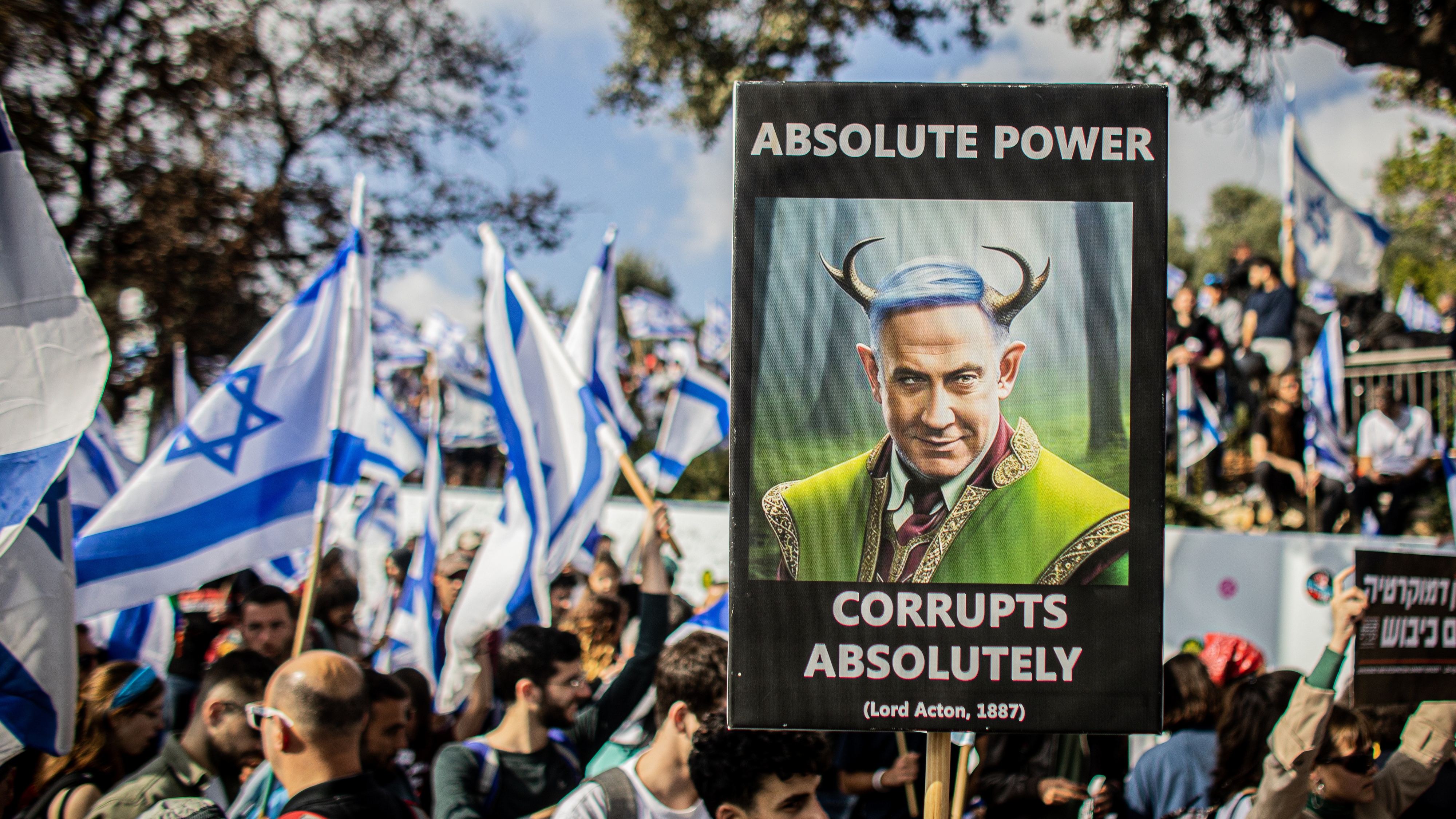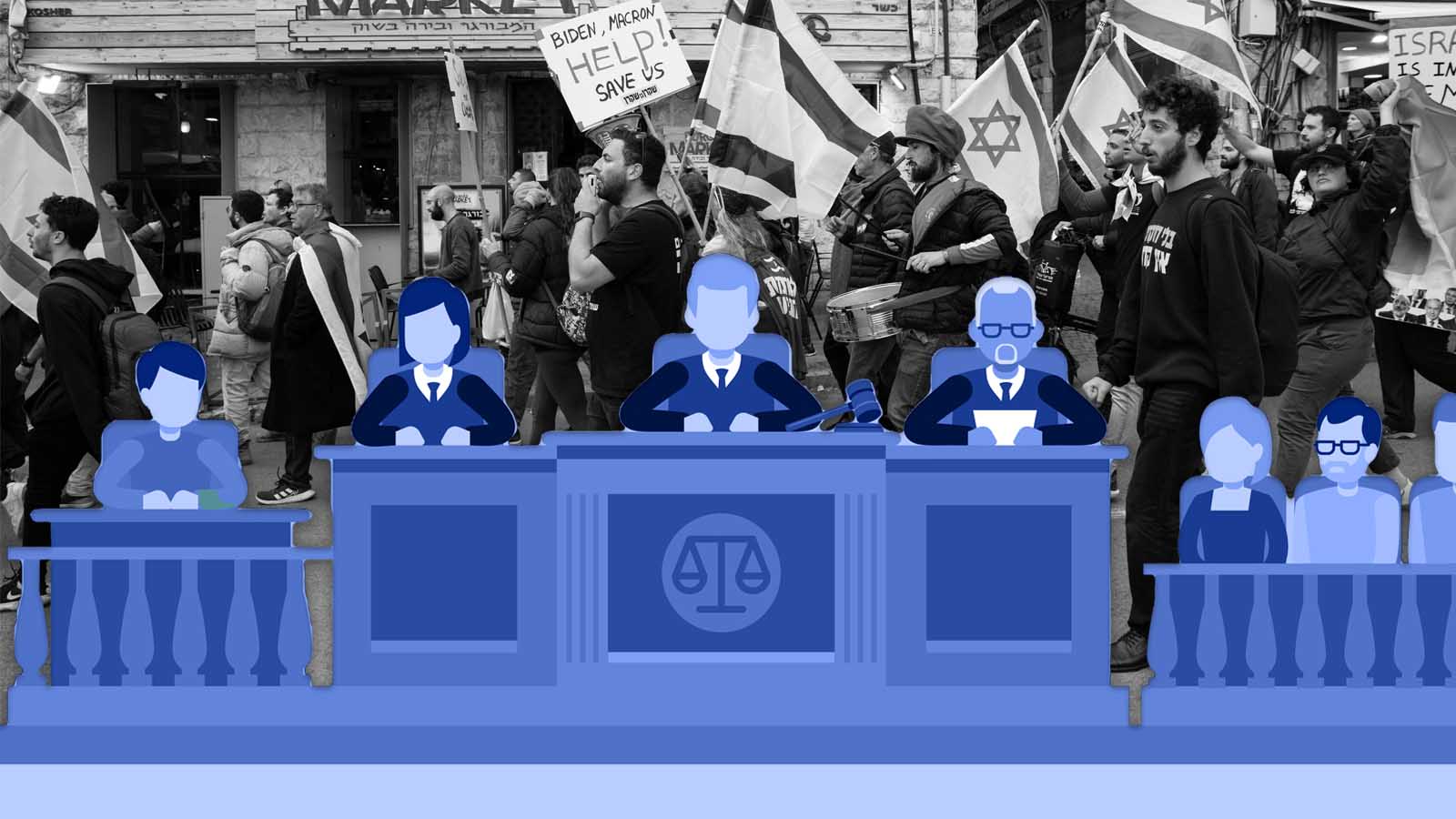The past controversies of Benjamin Netanyahu
The Israeli prime minister has been in hot water before


A free daily email with the biggest news stories of the day – and the best features from TheWeek.com
You are now subscribed
Your newsletter sign-up was successful
Protests have reached a boiling point in Israel after the government passed a bill to overhaul the country's judiciary, limiting the ability of the Israeli Supreme Court to conduct oversight. These controversies have proven greatly unpopular, and at the center of the furor is Prime Minister Benjamin Netanyahu, who has continually pressed forward with the reforms.
Netanyahu has been harshly criticized over these attempts, with opposition leader Yair Lapid saying that Netanyahu is "not really Israel's prime minister" and is performing "an empty show, because it is not within his authority," per The Times of Israel. There was also international backlash, with President Joe Biden telling Axios that Israel's "current judicial reform proposal is becoming more divisive, not less" and that it "doesn't make sense for Israeli leaders to rush this — the focus should be on pulling people together and finding consensus."
But this is hardly the first go-around of controversy for Netanyahu. The prime minister, who has held power on and off since 1996, has been involved in a "spiraling saga of legal troubles and scandals that have plagued the leader's three-decade political career," The Associated Press reported.
The Week
Escape your echo chamber. Get the facts behind the news, plus analysis from multiple perspectives.

Sign up for The Week's Free Newsletters
From our morning news briefing to a weekly Good News Newsletter, get the best of The Week delivered directly to your inbox.
From our morning news briefing to a weekly Good News Newsletter, get the best of The Week delivered directly to your inbox.
Problems in the '90s
In 1997, Netanyahu, who was then in his first time as prime minister, had his administration rocked, and nearly brought down, by an influence-peddling scandal," Haaretz reported. Known as the Bar-on-Hebron affair, the controversy involved Ronnie Bar-On, who was appointed attorney general by Netanyahu. However, Bar-On resigned after just 48 hours amid allegations that political leader Aryeh Deri, who was facing criminal charges, pushed Netanyahu to appoint Bar-On as "attorney general in exchange for the promise of a plea bargain in his case," The New York Times reported. Netanyahu is alleged to have appointed Bar-On in exchange for Deri's political support despite a "storm of protests from jurists and politicians who said [Bar-On] was not qualified."
Netanyahu was never charged and told CNN the scandal was "blown out of proportion and twisted out of shape." He added that he "committed no wrongdoing" but "made mistakes, and I have to correct them."
Misuse of funds
Netanyahu was criticized in 2016 after a state expense report revealed that he "spent more than $600,000 of public funds on a six-day trip to New York, including $1,600 on a personal hairdresser," The Associated Press reported. This is not the first time the prime minister was in hot water over his use of funds, as he was previously "criticized for spending $127,000 in public funds for a special sleeping cabin on a five-hour flight to London." Netanyahu claimed that he was unaware of the exorbitant costs, per the AP. It seems Netanyahu may also share Biden's love for ice cream, as it was revealed that his office "ran up a $2,700 bill for his favorite flavors, vanilla and pistachio."
Netanyahu's wife, Sara, was also caught up in a similar controversy, as she was "suspected of having used taxpayers' money to pay for her late father's care while he was living at the official Jerusalem residence," Al Jazeera reported. The couple has "long faced scrutiny over their spending and accusations that their lifestyles are out of touch with regular Israelis," the outlet added.
A free daily email with the biggest news stories of the day – and the best features from TheWeek.com
Criminal charges
Netanyahu was indicted in 2019 in three separate cases, charged with fraud, breach of trust, and bribery. The first case was related to his alleged receiving of gifts, valued around $200,000, that "became a sort of 'supply channel'" of fraud, BBC News reported. The second case involved meetings between Netanyahu and media mogul Arnon Mozes, who allegedly "engaged in discussions regarding the promotion of their common interests: improving the coverage that Netanyahu received in [Mozes'] media group, and the imposition of restrictions on the Israel Hayom newspaper," BBC News added. The third case involved an alleged "reciprocal arrangement" between Netanyahu and Shaul Elovitch, the head of Israel's largest telecommunications company. Netanyahu allegedly took "specific actions that promoted significant business interests of Elovitch of substantial financial value."
Netanyahu's trial began in 2020 and is ongoing. The controversy over the charges led Netanyahu to relinquish his cabinet posts besides that of prime minister. He has consistently maintained his innocence.
Justin Klawans has worked as a staff writer at The Week since 2022. He began his career covering local news before joining Newsweek as a breaking news reporter, where he wrote about politics, national and global affairs, business, crime, sports, film, television and other news. Justin has also freelanced for outlets including Collider and United Press International.
-
 The ‘ravenous’ demand for Cornish minerals
The ‘ravenous’ demand for Cornish mineralsUnder the Radar Growing need for critical minerals to power tech has intensified ‘appetite’ for lithium, which could be a ‘huge boon’ for local economy
-
 Why are election experts taking Trump’s midterm threats seriously?
Why are election experts taking Trump’s midterm threats seriously?IN THE SPOTLIGHT As the president muses about polling place deployments and a centralized electoral system aimed at one-party control, lawmakers are taking this administration at its word
-
 ‘Restaurateurs have become millionaires’
‘Restaurateurs have become millionaires’Instant Opinion Opinion, comment and editorials of the day
-
 10 things you need to know today: October 7, 2023
10 things you need to know today: October 7, 2023Daily Briefing Israel 'at war' with Hamas following deadly surprise attack, Chuck Schumer leads bipartisan congressional delegation to China, and more
-
 Netanyahu’s reforms: an existential threat to Israel?
Netanyahu’s reforms: an existential threat to Israel?feature The nation is divided over controversial move depriving Israel’s supreme court of the right to override government decisions
-
 A country still in crisis: Lebanon three years on from Beirut blast
A country still in crisis: Lebanon three years on from Beirut blastfeature Political, economic and criminal dramas are causing a damaging stalemate in the Middle East nation
-
 Israel on edge, Netanyahu hospitalized ahead of Supreme Court overhaul vote
Israel on edge, Netanyahu hospitalized ahead of Supreme Court overhaul voteSpeed Read
-
 Jenin and the endless cycle of Palestinian displacement
Jenin and the endless cycle of Palestinian displacementfeature Refugee camp at the heart of a struggle around demographics, displacement and mobility
-
 Netanyahu brings Israel to a crossroads
Netanyahu brings Israel to a crossroadsfeature The prime minister was ‘forced to pause’ his ‘ambitious plan’ to weaken country’s supreme court
-
 Why are Netanyahu's judicial reforms so controversial?
Why are Netanyahu's judicial reforms so controversial?In Depth Opponents have warned the government's suggested reforms could be the end of democracy in Israel
-
 Israel reportedly behind drone attack on Iranian military-linked warehouse in Isfahan
Israel reportedly behind drone attack on Iranian military-linked warehouse in IsfahanSpeed Read
